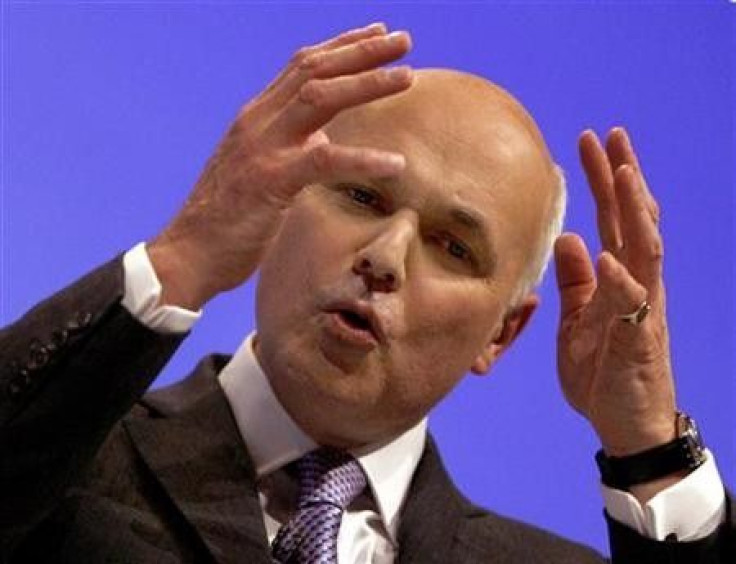Long-Term Unemployment, Increasing Poverty Plague UK
Spending Cuts and Downward Pressure on Salaries Do Little for UK Welfare

In the wake of mounting economic hardship for Britons, Work and Pensions Secretary Iain Duncan Smith urged residents to get jobs and fend for themselves rather than rely on state benefits and handouts.
Speaking on Thursday, he said the former Labor government's strategy to funnel more than £150 billion into tax credits and benefit payments between 2004 and 2010, snowballing the welfare bill by 40 percent even in a decade of buoyant growth and employment, hasn't done much to alleviate the incidence of child poverty. England is becoming increasingly rife with concerns over unemployment and underemployment on the heels of the country's possible slip into its first double-dip recession since the 1970s.
Though current unemployment levels fell by 45,000 to 8.2 percent between January and March 2012, the number of people who had no jobs for longer than a year increased by 27,000 to 887,000, reaching a 16-year high, according to data from the Office of National Statistics. Furthermore, the number of workers who hold full-time jobs shrank by 13,000 to 21.2 million. That means many more people who are in the workforce are being shunted into part-time jobs.
At a time when the country remains engulfed in the swirl of the European financial crisis, these levels of long-term unemployment are not only unsustainable to meet the economy's growth needs but also demonstrates the crisis that UK residents are currently facing, economists say.
Meanwhile, claims for unemployment benefits climbed by 7,200 to £1.6 million ($2.5 million) in March, increasing for the 12th month in a row, reported the Office of National Statistics.
Food-bank handouts have more than doubled in the past year. This is projected to increase further, officials from Trussell Trust, Britain's leading food-bank network, told The Guardian in April 2012. Though unemployment and long-term jobless workers are indeed issues, the stupendous rise in emergency food parcels isn't because residents cannot find jobs. Amid rising living costs and a staggering downward pressure on salaries, many families are struggling to make ends meet. Often, they barely do.
UK benefits are the lowest in the civilized world. Coupled with high prices, this leads to a long-term decline in health -- especially mental health, said a former UK resident who moved in 2000 to the Netherlands, where he started a construction business. And social security laws, he added, should be extended to all that apply. There is no point in high levels of production worldwide, without the consumers.
Consumers' purchasing power has declined significantly over the last three years, according to a household income report, released by the UK Department for Work and Pensions this month. The fall in real earnings pushed median incomes down, coaxing some state-dependent families above the poverty line. However, middle-income-range families grew poorer much faster than their lower-income counterparts.
According to the survey, the range of income inequality narrowed in spite of a fall in median incomes. Inflation-indexed median household net incomes less housing costs slumped 3 percent to £419 ($655) a week, from £432 ($676) a year before.
The Conservative-Lib Dem coalition government is being decried for paying too much attention to the mounting instabilities in the German and Spanish bond markets, even as poverty is broiling at home.
The poverty increase emerges against a backdrop of spending cuts and a second straight quarter of contracting GDP growth this year. GDP, in the first quarter of this year, was estimated to be 0.1 percent. It was 0.6 percent in the fourth quarter of 2011.
--
© Copyright IBTimes 2024. All rights reserved.











